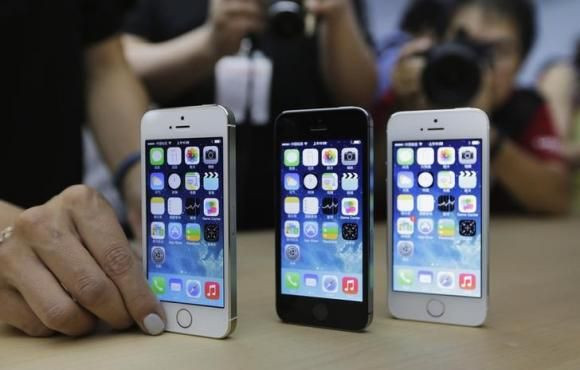China's Unhappy Relationship With Apple

Since first appearing on the Chinese market in 2007, iPhones have endured a series of challenges, but the iconic smart phones made by Apple Inc. (NASDAQ:AAPL) had never been accused of threatening the country’s security. But on Friday the country’s state-run broadcaster China Central Television (CCTV) said that the iPhone's “Frequent Locations” tracker possesses “extremely sensitive data” that, if revealed, may disclose national secrets.
The Mountain View, California, has not yet responded to the CCTV statement. John Brownlee, a blogger at the Cult of Mac, characterized the allegations as “absurd” and noted that Apple does not keep any information stored in the “Secret Locations” tab.
The report is merely the latest clash between a major American tech company and the Chinese government. In May, Beijing issued an edict forbidding government-operated computers from running Windows 8, the newest operating system of Microsoft Corp. (NASDAQ:MSFT), citing a security concern with the widely used Windows XP. The Chinese government has also interfered with Google Inc. (NASDAQ:GOOG) services, disrupting email and search services throughout the country, and has clashed with hardware companies like Intel Corp. (NASDAQ:INTC).
National security concerns have increasingly dominated the Sino-American relationship. Since 2013, when the New York Times revealed that a Chinese army unit spied on American interests from an unmarked building near Shanghai, each country has accused the other of widespread espionage. Beijing has accused Apple of providing sensitive data to the U.S. government, a charge Apple has denied.
But Beijing’s criticism of Apple may have a separate commercial motive. In the past two years, Xiaomi, an inexpensive smart phone created and manufactured in China, has emerged as a strong domestic competitor to the iPhone. Beijing has identified technological innovation as a national economic priority.
IPhone sales in China remain robust: Apple sold an estimated 12 million devices in the first quarter of 2014, representing year-on-year growth of 25 percent.
© Copyright IBTimes 2025. All rights reserved.






















